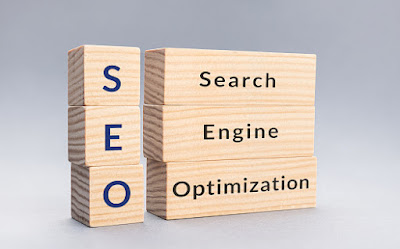Technical SEO and Content SEO are two important parts of optimizing a website for search engines. While they are related, they focus on different elements of a website and have different goals.
 |
| Technical SEO vs Content SEO |
Technical SEO is the practice of optimizing the technical elements of a website to improve its visibility and ranking in search engine results pages (SERPs) Search Engine Result Pages. Its includes tasks such as improving website load speed, mobile-friendliness, implementing structured data, fixing crawl errors, and improving website navigation and internal linking. The goal of Technical SEO is to create a foundation for a website that is easily discoverable and accessible to both users and search engines.
 |
| Technical SEO vs Content SEO |
On other hand, Content SEO refers to the optimization of the content on a website to improve its ranking in search engine results pages. Its includes tasks such as keyword research, create high-quality and relevant content, optimizing content for readability, and using header tags and meta descriptions effectively.
Goal of content SEO is to create a positive user experience and provide search engines with the information they need to understand what the website is about and rank it accordingly.
While both Technical SEO and Content SEO are important, they focus on different domains of a website and have different goals. A successful SEO strategy should include a balance of both technical and content optimization.
 |
| Technical SEO vs Content SEO |
Technical SEO include the optimization of a website's technical elements to make it more reliable search engine friendly.
It involves tasks such as:
Site Speed:
Website load speed is a key factor in determining a website's ranking in search results. Technical SEO includes tasks such as compressing images, compress size of CSS and JavaScript files, and reducing server response time.
Indexing & Crawling:
Search engines crawl and index websites to get information about the content and structure of a site. Technical SEO includes tasks such as submit sitemaps, fixing crawl errors, and preventing unwanted pages from being indexed.
Website Architecture:
Structure and Organization of a website can impact its discoverability by search engines. Technical SEO involves tasks such as improving website navigation, using descriptive URLs, and optimizing the use of categories and subdirectories.
Mobile Optimization:
A mobile-friendly website is crucial for ranking well in search results, as more and more searches are performed on mobile devices. Technical SEO includes tasks such as implementing a responsive design and using mobile-friendly technologies such as Accelerated Mobile Pages (AMP).
Security:
A secure website is important not only for the user experience, but also for ranking in search results. Technical SEO includes tasks such as implementing SSL certificates, using secure HTTP (HTTPS) protocol, and securing the website against hacking and other security threats.
On other hand, Content SEO involves the optimization of a website's content to improve its visibility and ranking in search results.
Its involves tasks such as:
Content Creation:
Creating high-quality, relevant, and valuable content is important for ranking well in search results. Content SEO includes tasks such as creating blog posts, videos, infographics, and other types of content that provides value to users.
Content Optimization:
Search Engines use Algorithms to determine the relevance and value of content. Content SEO includes tasks such as using header tags, meta descriptions, and alt text effectively, optimizing content for readability, and using internal linking to connect related content.
Keyword Research:
Understand what keywords users are searching for is key to creating content that is relevant and value. Content SEO includes tasks such as conducting keyword research, identifying high-traffic keywords, and using them in content in a natural and relevant way.
Link Building:
Backlinks from other websites are an important factor in determining a website's ranking in search results. Content SEO includes tasks such as creating high-quality content that others will want to link to, reaching out to websites and influencers to request links, and using internal linking to distribute link equity throughout the website.
Technical SEO and Content SEO are both important for optimizing a website for search engines, But they focus on different elements of a website and have different goals. Technical SEO the foundation for a search engine-friendly website, While Content SEO focuses on the optimization of a website's content to improve its visibility and ranking in search results. Both should be integrated into a comprehensive SEO strategy for best results.

0 Comments